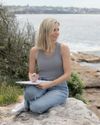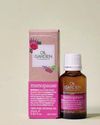
Traditionally, heretical ideas tended to occur in the religious arena. For centuries, Catholicism fended off notions that challenged its tightly held dogmas, and these included its arch-nemesis, Gnosticism. However, heresies do not just occur in the field of religion. In science too, consensus has a tendency to harden into dogma that is hard to challenge, despite the fact that science is a work in progress, and some previous assumptions continue to be overturned.
In the field of microbiology, it is widely accepted under the principle of “monomorphism” that microorganisms are stable and do not change shape, except in rare instances. This contrasts strongly with another “pleomorphic” school that holds the opposite view, namely that microorganisms frequently undergo dramatic changes, with far-reaching ramifications.
During the glory days of pleomorphism in the early 20th century, numerous researchers were uncovering similar strange phenomena, sometimes unaware of one another’s work. Rivalry between the two schools continued until around 1940, when monomorphism won out and became the dominant paradigm.
The story of pleomorphism really begins with a now-forgotten French researcher working century and a half ago.
Antoine Béchamp (1816–1908)
A distinguished French scientist and cell specialist, during the 1860s Béchamp was working with moulds. Using a light microscope with a magnification of about 1000×, he discovered small particles that he called microzymas (“tiny ferments”). These were named because they were in a constant state of agitated motion, and also had a glistening, sparkling appearance.
This story is from the Issue 186 edition of WellBeing.
Start your 7-day Magzter GOLD free trial to access thousands of curated premium stories, and 9,000+ magazines and newspapers.
Already a subscriber ? Sign In
This story is from the Issue 186 edition of WellBeing.
Start your 7-day Magzter GOLD free trial to access thousands of curated premium stories, and 9,000+ magazines and newspapers.
Already a subscriber? Sign In

YOGA FOR IMPERFECTION
Life is messy and we all make mistakes, but by embracing imperfection, we can begin to accept all parts of ourselves.

Creating the foundations of ritualist self-care
As a busy mum of a three-year-old and expecting another baby, finding time for self-care often feels like a luxury.

Are you doom spending?
If \"doom spending\" has become your go-to for coping with stress, you could be making withdrawals from not just your bank account, but your health too.

THE POWER OF music
Most of us enjoy music. But science shows music is central to being human and its effect on us is far more astonishing and impactful than we realise. Music is fundamental to life.

SYNTHETIC FOODS
Synthetic, or genetically modified, fake meats and the like attempt to mimic real meat in both looks, taste and texture. But how much do we really know about the production process and how do they affect the environment and our bodies?

Embracing the power of nature
Menopause is more than just a biological change, it represents a significant life stage that can present numerous challenges - from hot flushes and mood swings to fatigue and sleepless nights.

Jan Fran
From a young age, Jan Fran's deep curiosity and keen interest in social issues sparked her journey into the world of journalism. As an accomplished journalist, media commentator and broadcaster, Fran's passion for storytelling has always been driven by a desire to explore, question and shed light on the world around her.

Helping teen girls thrive
Statistics reveal that many more teen girls are struggling with mental health issues. What's going on with them? More importantly, what can we do to help them flourish?

Your ageing eyes
Your eyes work hard for you every waking minute. It is no surprise that how your eyes age will be determined by how you protect them. Eating the right foods can go along way towards ensuring that your eyes stay healthy for a lifetime.

The bottom line
During the Couid pandemic, we were shocked to see people fighting in supermarkets over toilet paper and to see empty shelves that had once held roll after roll. The reasons behind the run for toilet paper during this time reflect the unique place that it holds in our psyche and are deeply rooted in our history.